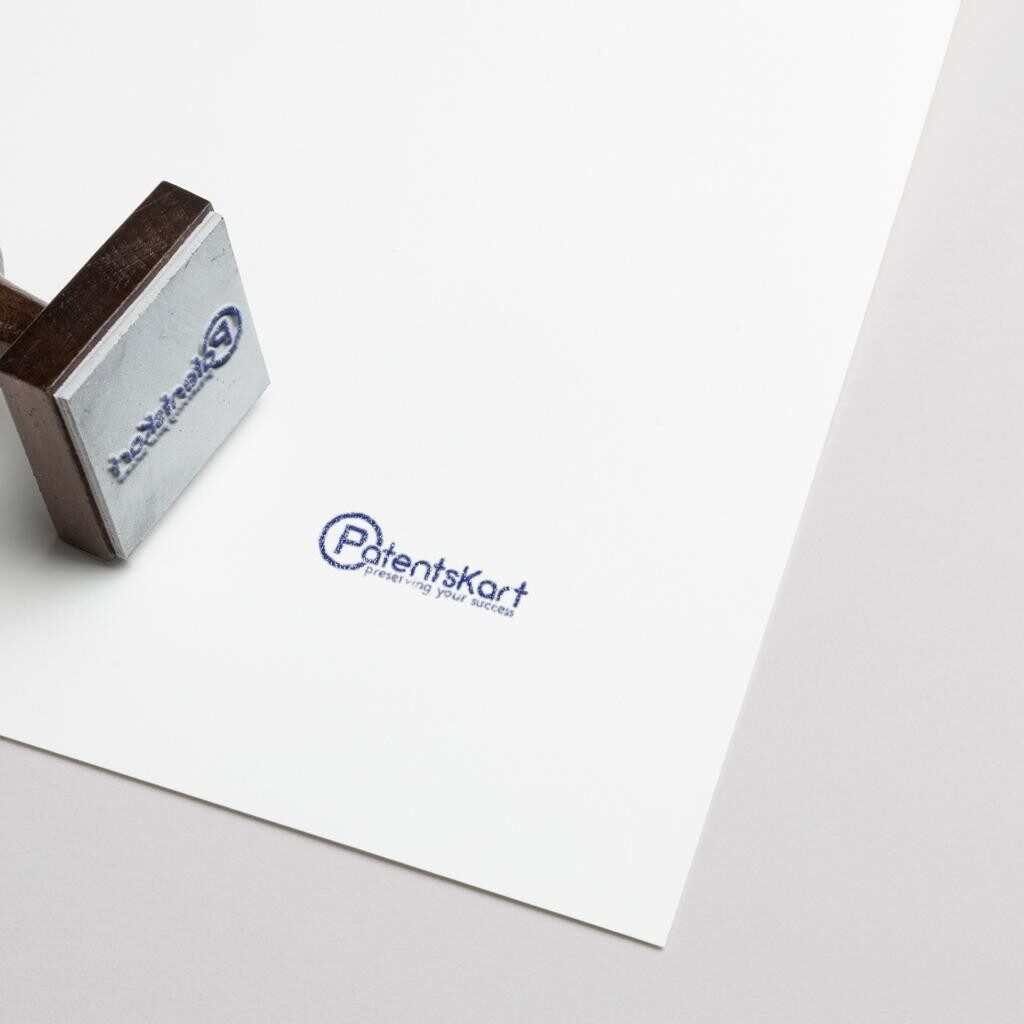Scrutinizing target claims and limitations to challenge patent
Scrutinizing target claims and limitations to challenge patent

Analysis of file wrapper, inequitable conduct

Detailed claim chart mapping, with expert comments

5-10 business days turnaround time

Multiple options customized to suit your budget

The primary goal of a patent invalidation search is to identify prior art references that may have been overlooked during patent prosecution. Missing references can call into question the novelty or non-obviousness of granted claims. Factors like language barriers and limited access to foreign patent databases often result in gaps in prior art review. Conducting a thorough invalidity search is crucial to confirm the validity of a patent and assess the strength and enforceability of granted claims, supporting patent litigation, opposition proceedings, and informed IP strategy decisions.
Our Validation Invalidation Search reports include:
Leverage our diverse industry experience
Whether challenging your own patents or those of competitors, patent invalidation searches are critical for evaluating patent validity and enforceability. At PatentsKart, we employ a robust search strategy that includes relevant prior art searches, non-patent literature analysis, and technical documentation reviews to uncover evidence that may contest the validity of a patent. In today’s competitive technology landscape, achieving market dominance requires significant investment in R&D and patenting. Our invalidity search services help companies make informed decisions, protect investments, and develop a strategic advantage while minimizing legal and financial risks.
For companies facing intense competition, a patent invalidation search can be an effective tool to challenge competitor patents by analyzing technical and non-technical documentation. This process helps identify weaknesses in granted patents, supporting infringement defense, patent portfolio assessment, and strategic decisions to maintain market advantage. Properly executed, an invalidity search minimizes legal and financial risks while enabling companies to make informed IP and business strategy decisions.


When faced with a patent infringement allegation, the accused party can leverage a patent invalidation search to contest the validity of the asserted patent. By analyzing prior art, patent claims, and non-patent literature, the search can demonstrate that the patent claims are not novel, obvious, or fall under statutory exceptions. Careful attention to the patent’s effective filing date or earliest priority date is crucial. Properly executed, this invalidity search can provide strong evidence to invalidate or revoke the patent, rendering the infringement claim baseless and strengthening your defense strategy.
In cases of patent infringement allegations, the accused party can employ a patent invalidation search to show that their invention is novel and non-obvious. By conducting a thorough prior art analysis, the search provides evidence that the accused product or technology does not infringe the asserted patent, supporting a strong non-infringement defense and guiding strategic IP risk management.
The results of a patent invalidation search are critical in patent infringement suits. Not only can the search be used to invalidate or revoke the challenged patent, but it also serves to defend against allegations of infringement by providing evidence of prior art, non-obviousness, and novelty. This makes it an essential tool for IP litigation support, portfolio management, and strategic decision-making.
A patent invalidation or validity search can help assess and strengthen the value of your patent portfolio. For instance, an invalidity search report demonstrating that a patent’s claims are novel, non-obvious, and compliant with statutory requirements confirms the patent’s strength. This not only enhances the patent’s monetary and strategic value but also supports informed IP management, licensing decisions, and portfolio optimization.
A patent grant certificate, along with an invalidity search report stating the claims of the patent novel and non-obvious, is the most substantial evidence of the strength of a patent. A patent is likely to bring more value through licensing if it is immune to any infringement suits and possesses a greater degree of novelty and inventive step (non-obvious). Thus, it is less likely to be objected to because it falls under the statutory exceptions after it is granted.
A patent invalidation search can be proactively conducted by any company, organization, or individual to evaluate the strength, enforceability, and commercial potential of their patents. This voluntary assessment helps in portfolio optimization, strategic IP planning, licensing opportunities, and ensures that the patent remains resilient against potential challenges or infringement claims.


A patent invalidation search is a powerful tool for assessing and challenging competitor patents. It helps determine whether the claims of a granted patent are non-novel, obvious, or fall under statutory exceptions, such as prior public use, prior sale, exhibition before filing, or wrongful/fraudulent procurement. By uncovering these weaknesses, companies can strategically mitigate competitor advantages, protect their market position, and make informed IP and business decisions.
The primary goal of a patent invalidation search is to uncover prior art references or relevant facts that may have been overlooked during the original patent prosecution. By identifying these gaps, companies can challenge and potentially revoke competitor patents, effectively clearing the competitive field and reinforcing their own market position and IP strategy.
The results of a patent invalidation search are crucial in patent infringement cases. This search can be used to invalidate a competitor’s patent or to defend against allegations of infringement by providing evidence of prior art, non-obviousness, and novelty. Leveraging these insights helps strengthen IP litigation strategies, protect your patent portfolio, and mitigate potential legal and financial risks.
We will Answer your Questions, Scope your Project and Ensure Quality Results
Practices We follow – Patent Invalidation Search
Invalidation Search can be used as a voluntary step by any company, organization, or individual to assess the strength of its patents.
Before the Patent’s filing date is invalidated (PTBI) since the searches are run to locate prior art ordinarily published before the Patent’s filing date, a date restriction is set on the search accordingly. Sometimes one or more of the patent claims have a priority date later than the filing date of the PTBI. In such cases, the date limitation shall be before the priority date of the claim.
Additional searches such as assignee-based, inventor-based, and citation-based are brought out in an invalidation search. These searches help prepare an optimal search strategy to find a relevant prior art.Invalidation is clear to the features of the claim to be invalidated. For example, a comprehensive invention covering the concept but not distinct aspects of the invention may not be considered related.
Since the originality and non-obviousness measures for the PTBI at the time of filing is complete and across the globe.
Document Type Restriction: Again, it is necessary and fascinating to note that even a non-formal consideration such as a comic strip can be used to destroy the Patentability of a creation.


Traditional patent searches often rely on keywords or classification codes, which can miss critical prior art that uses different terminology. Concept-based searching overcomes this limitation by analyzing the underlying technical ideas and inventive principles of a patent. PatentsKart leverages AI and machine learning algorithms to understand semantic relationships across patents, ensuring that no relevant prior art remains undiscovered. This approach forms the foundation of strong, defensible patent invalidation studies.
By using concept-based searching, legal and R&D teams can uncover patents with similar functions, objectives, or mechanisms, even when the language differs from the original filing. This enables a comprehensive evaluation of the patent landscape, highlighting potential invalidity grounds that traditional searches would overlook. With AI-driven semantic analysis, PatentsKart helps companies identify hidden overlaps, mitigate infringement risks, and make informed decisions in both litigation and innovation planning.
Integrating concept-based search into your patent invalidation workflow provides strategic advantages beyond mere legal compliance. Companies gain a clear view of technological gaps and white-space opportunities, enabling innovation while minimizing exposure to risky patents. PatentsKart’s approach ensures that every invalidation study is data-driven, precise, and actionable, combining the power of AI with domain expertise to transform complex patent information into real business intelligence.
Concept-based searching elevates patent invalidation from a purely legal exercise to a strategic business tool. PatentsKart’s AI-powered approach analyzes functional similarities, inventive concepts, and semantic relationships across multiple patents, enabling companies to make data-driven decisions. By uncovering hidden overlaps and potential invalidity grounds, businesses can proactively manage patent risks and optimize their innovation strategies.
With insights generated from concept-based analysis, organizations can identify opportunities for licensing, collaboration, or strategic litigation. This method allows teams to visualize the entire patent landscape, revealing gaps in technology coverage and white-space opportunities. PatentsKart ensures that every invalidation study is comprehensive, actionable, and aligned with business objectives, providing both legal teams and R&D departments a clear roadmap for innovation and risk management.
Integrating concept-based searching into invalidation workflows empowers companies to make informed, high-stakes decisions faster. By combining AI-driven semantic analysis with expert interpretation, PatentsKart transforms complex patent data into strategic intelligence, reducing litigation uncertainty and accelerating innovation planning. The result is a scalable, efficient, and precise invalidation process that supports long-term business growth and technology leadership.

PatentsKart conducts focused patent invalidity searches to identify prior art that challenges the novelty or non-obviousness of a patent. Our experts meticulously review the target patent claims, analyzing the language and the full claim set to develop strategic search methodologies. Using this approach, we uncover references—used individually or in combination—that can potentially invalidate patent claims. Due to the highly specialized nature of patent invalidity searches, these tasks are best handled by experienced patent attorneys or IP search professionals.
For complex litigations or high-value invalidity searches, PatentsKart collaborates closely with clients to tailor search strategies according to specific requirements. We develop unique patent invalidation approaches, provide interim reports and regular updates, and ensure the discovery of critical “killer prior art.” Both non-patent literature and the precise patent claim language play a pivotal role in patentability and invalidation searches, making expert guidance essential for effective results.
In a patent invalidation or validity search, even a single relevant prior art reference that directly maps all the claim features can determine the outcome of the project. These searches are exhaustive, date-specific analyses conducted against the claims and precise language of a patent to verify its validity or potentially invalidate it by uncovering prior art filed before the patent’s earliest priority or filing date. Such targeted searches are critical for patent litigation, licensing, and portfolio assessment.
The objective of Patent Invalidation(Invalidity Searches) is to invalidate or revoke an already registered granted patent claims or for a pre-grant opposition of a published patent application claims, and Non-Patent Literature Can Serve as Conclusive Evidence for Proving Patent Invalidity. Additional criteria may include: identity or type of applicants, filing date , current legal status, territories covered.
The portfolio analysis is conducted to identify the relevant strength of all patents within the portfolio and, if need be, understand how and which of the patents in the specified portfolio are potentially infringed by the live products in the market. In addition, practical portfolio analysis helps in identifying where the value is in the patent portfolio. Over the period, valuable patent assets can be”lost” in the complexity of the broader portfolio if worthless assets are maintained unnecessarily, and their actual value through sale or licensing is never realized.
The assignee/plaintiff performs the validity search after the grant of a patent to ensure that the patent granted is valid and enforceable. In contrast, a defendant conducts a patent invalidity search to invalidate a patent by conducting a prior art search and can be done by patent attorneys and law firms.
Post-grant opposition can file only after the grant of a patent but within one year of the grant date. In addition, a pre-grant opposition can be filed by any party, whereas a post-grant opposition can be filed only by an interested party
Google patents, USPTO, Espacenet, WIPO, have access to the world leading patent and non-patent literature databases.
We provide high end IP research and analytic solutions with visualization models and tools designed to offer valuable insights in complex IP decision making scenarios for our clients.Our services include:-
Patent Research Services:
Our research specialists, with expertise across varied technology domains, focus on identifying search results that accurately meet the clients 2019 objectives. Our team has more than 10,000 hours of searching experience with excellence in complete nuances of claim mapping. Our clients review our services as need based, cost effective and highly efficient.
IP Analytical Services:
We have extensively worked with recognized enterprises on varied technologies on specific research objectives like competitor benchmarking, investment decisions, development of future innovation R&D strategies, licensing acquisitions and other whitespace analytical solutions.We equip our clients with capabilities to take data driven business decisions through our unified dynamic dashboards built on leading analytical tools like Power BI, Tableau,etc.
IT Services:
We provide clients with Machine learning/Artificial Intelligence based self-sufficient tools/models to assist manual patent searches and improves efficiency and effectiveness in IP related decision making By combining all the above services, we are able to create powerful patent solutions for our clients that can be used, shared, scaled, updated 2026. with a click of a button. This creates efficient workflows and helps our clients to focus on performing actions more than analysis.
100% of our team has more than 10,000 hours of searching experience. Hence, we are in a position to commit best quality work, consistently, all the time.
Specialized Content:
Each report focus on accurately presenting identified project outputs in a manner that accurately meet the clients 2019 objectives. Also,we always offer a unique segment that is aimed at driving maximum impact with minimal effort for our clients.For example,Interconnected dynamic dashboards alongwith landscape reports or
Key Feature Analysis table for Patentability type searches:
Claims
Key Feature 1
Key Feature 2
Key Feature 3
Claim 1
Claim 2
Claim 3
Yes (Interpreted)
Functional Intellectual Expertise:
Our senior team members have worked for tier-1 Strategy consulting firms and have served Fortune 10 clients for multiple years.They are qualified from the top 30 ranked MBA institutes in the world, and top 3 in India They are well versed with techniques to distil oceans of data into useful insights focused on specific research objectives like competitor benchmarking, investment decisions, development of future innovation R&D strategies, licensing acquisitions and other whitespace analytical solutions.
Analytical Tools Expertise:
We work on superior analytic tools like Power BI, Tableau, Alteryx, etc to gather, process and visualize unstructured data in all its forms and transform into one complete dashboard solution with relevant data connectors that break down the data silos and highlights valuable insights especially in complex IP decision making scenarios as per our clients 2019 needs.
Do you have IT capabilities?
Yes! We have an in-house IT team capable of handling EVERYTHING ranging from internal patents 2019 database/software development to machine learning based patent ranking watch searching tools. Don 2019t forget to ask for a demo of our IT services portfolio.
Our experienced team of patent researchers and analysts has advanced qualifications in wide ranging technology domains like electronics and telecommunications, mechanical and metallurgy, life sciences (including pharmaceuticals, biotechnology, chemistry and biochemistry) and computer science, along with a separate team of specialized trademark and patent agents\\/attorneys.
Yes, We provide search services in Chinese Taiwenese Japanese languages
Workflow Optimization is a cross platform message optimization app for all devices.
United States-13521, 58th St. SE Snohomish, WA – 98290, USA
INDIA - PatentsKart B1, Netsmartz House, IT Park, Chandigarh - 160101
Copyright © 2024 Patentskart. All rights reserved